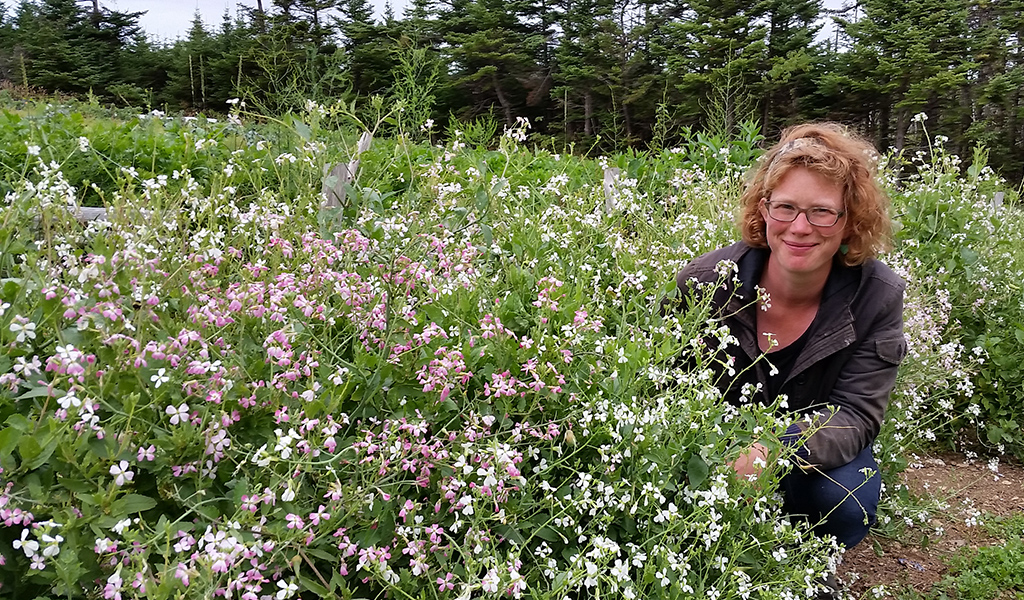LOCALIZING THE FOOD SYSTEM, STARTING WITH SEED

Sarah Crocker with her Pink Beauty radish seed crop in Portugal Cove, NL
For Sarah Crocker, selling seeds has always been a side hustle. The CSA is the main event. Though the farm she runs with her husband, Adam, in Portugal Cove, NL, is called Seed to Spoon, she didn’t give it that name. It was named by the farming collective of people working on Lien Family Farm that she joined in 2010 when moving back to Newfoundland after years working on farms in Ontario and Nova Scotia.
Still, Sarah explains that it all leads back to seeds: “Seed saving for us touches on a few different things for our farm. Obviously, sourcing organic seed and other inputs can sometimes be a challenge. We're also really interested in unique and original varieties. So getting access to things that are maybe not commonly available in garden centers. We're just fascinated by the diversity of different seed varieties and it’s also something that our customers really appreciate about what we do here. That's the big picture reason why we do seed saving, but it also adds a lot to our farming practice. I really like to see the plants in their full lifecycle. So often with market gardening you're just seeing the vegetable growth, not necessarily the flowering and the seed growth of the plant. So it's an interesting way of evaluating what you're doing, really localizing your food system and being able to share with others. When you start getting into seed saving, it's very quickly a very generous pursuit. A plant produces so many seeds, you end up sharing quite a lot and having a lot of information in tiny little packets.”
“The Bauta Family Initiative and I have been tangled up with each other for some time now,” Sarah shared. She participated in the mentorship program, received a grant to establish a local seed library, and has participated in peer-to-peer learning opportunities with other seed savers in Atlantic Canada. “As a market gardener, I think it is a challenge to integrate seed saving for your own production or for a commercial production into that routine. However, The Bauta Family Initiative has helped support me with exploring how that might work on our small farm. So the farmer-to-farmer knowledge exchange has been really important, because it's hard to find resources at our very small scale”
Sarah also contributes to the work of SeedChange as a Board Member: “I was really motivated by this work. I joined the board of SeedChange a couple years ago because I do think the larger mission to support agro-ecological growing around the world with a feminist perspective is really important and I appreciate the work that they do.”
Sarah is passionate about exploring varieties that grow well in the unique and challenging growing conditions of Newfoundland and that work with their particular cultivation methods. “Our season is very short for a market garden. It's very wet and very grey. So we don't really get degree days that they do in other parts of the country where you can consistently have above 20 degrees Celsius. We have a lot of cloud cover, a lot of damp and rain.” They have had success with short day, good tasting tomatoes by exploring different eastern European varieties. Moravsky Div, for example, is a reliably early tomato for their type of small scale greenhouse production. She has also been growing and saving a batch of Painted Mountain Flour Corn for the past five growing seasons.
What’s next for Sarah on the seed exploration front? Legumes that are less sensitive to cold weather and fungal disease and green shouldered rutabaga … or turnips as they’re known around there!Credits
Thanks to Meredith Davis, Good Roots Consulting, who conducted the farmer interviews for this story.








